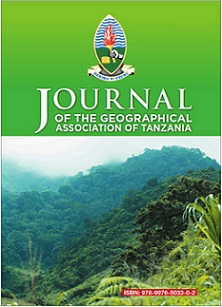Groundwater use in Climate Change adaptation in Moshi district, Tanzania
Abstract
The paper assesses the usability of groundwater in climate change adaptation in Moshi rural district,Tanzania. It examines how groundwater is used as a climate change adaptation strategy as well as
the strategy for boosting other adaptation strategies. Data for the study were gathered from five
major sources; these include field observation, interviews, household questionnaires and focus group
discussions (FGDs). It also reviewed various literature including weather-recorded data. The study
found that groundwater is unsurpassed climate change adaptation in the area and it enhances other
adaptation mechanisms like planting trees and irrigation. The use of groundwater has thrived to diminish
water shortage in the area as a result it helps to increase water for domestic and sanitation usage. It also
boosted water use range per person per day and decreased the distances walked by persons in obtaining
domestic water. Despite these advantages, groundwater is neglected and less preferred in government
planning, a snag that leads to poor groundwater usage and conservation. This paper concludes that,
groundwater is among the best climate change options in Moshi rural district as it helped to cover
water shortage between rainfall seasons in the area since the area was semi-arid. It provided daily
water supply in the area for both agriculture and domestic use hence supporting people ' s livelihood.
Therefore, this paper recommends more research on contributions made by groundwater in climate
change adaptation in semi arid regions in Tanzania. This will generate knowledge that can be used by
planners in climate change adaptation since groundwater can help to evacuate people ' s livelihood from
climate change vulnerability.
Downloads
Published
2017-05-24
Issue
Section
Articles


